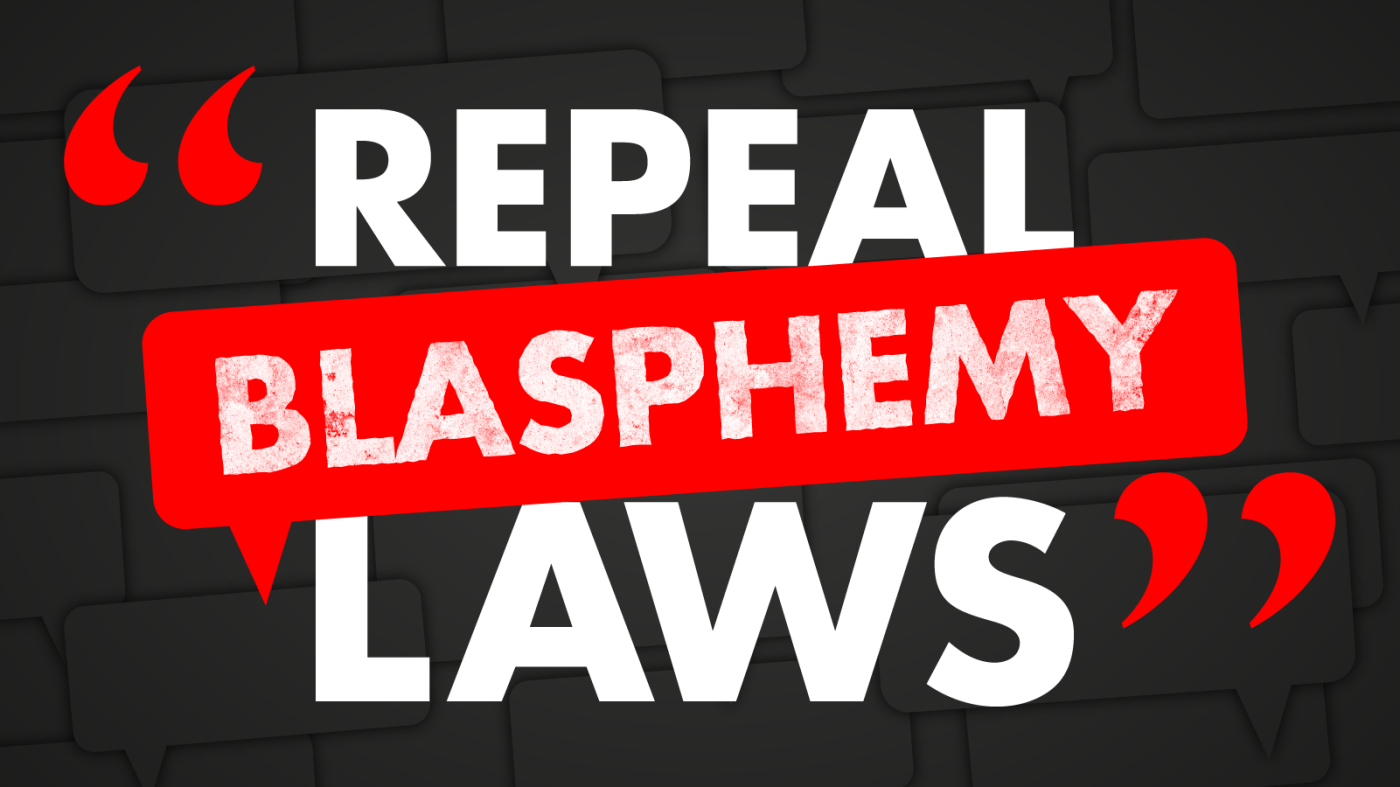Why won’t the government condemn the existence of Pakistan’s blasphemy laws?
Posted: Thu, 18th Jul 2019 by Chris Sloggett
Ministers keep condemning the "misuse" of Pakistan's blasphemy laws in response to parliamentary questions. But the 'misuse' of indefensible laws isn't the issue – the existence of them is, says Chris Sloggett.
On Monday Foreign Office minister Tariq Ahmad addressed a question about the case of Shaghufta Kausar in a written answer to a question from a fellow peer.
Keen human rights defenders may recognise this case. The National Secular Society's Secularist of the Year for 2019, Saif ul Malook, is defending Shaghufta as she faces a possible death sentence in Pakistan over an allegation that she sent a text message insulting Muhammad. This is very risky work: lawyers who defend those accused of blasphemy in Pakistan face routine threats and some, such as Rashid Rehman, have been killed.
Ahmad's response to the question may have appeared curious at face value. He said the government was continuing to monitor Shaghufta's case and addressed specific points about Shaghufta and her husband's faith and reported illiteracy. Then he delivered a line which should alarm anyone who believes in freedom of expression:
"We regularly raise our concerns about the misuse of the blasphemy laws with the government of Pakistan at a senior level."
Perhaps we could dismiss this if it was merely a one-off. But it isn't. Just a week earlier Ahmad also criticised "the misuse of" Pakistan's blasphemy laws in response to a different question. Last month Mark Field expressed the government's concerns about "the misuse of blasphemy laws" in Pakistan in the Commons. A few days earlier Liz Sugg, the parliamentary under-secretary for international development, did the same in a Lords debate.
The month before that it was Ahmad again. In February Susan Williams, on behalf of the Department for International Development, used the word "misuse" twice in one written answer.
None of these answers featured any direct condemnation of the fact that Pakistan's blasphemy laws exist. And a search on the TheyWorkForYou website reveals that the government has been using this language for many months. These words have clearly been chosen very deliberately.
The word 'misuse' appears to mean two things in this context. Firstly the government appears to be condemning the use of blasphemy laws when the person involved is unlikely to have done anything that could be perceived as 'blasphemous'.
This includes the use of blasphemy laws to settle vendettas, which is routine in Pakistan. Asia Bibi, who was on death row for eight years until her acquittal last year, was charged with blasphemy after getting in to a row with some local Muslim women. It explains the interest in Shaghufta Kausar and her husband's literacy levels – if they are illiterate, it is likely they didn't send the message in question.
But if a state asks whether someone insulted a prophet with a view to punishing them for doing so, the appropriate answer is "who cares?" Answering "no" gives the question a legitimacy which it does not deserve. It implies that anyone who criticises Islam or challenges the power of Islamism in Pakistan could reasonably be considered guilty of a crime. In reality these people are likely to be brave free speech champions worthy of celebration.
The government's language is also partly designed to condemn the extreme punishments which are applied for blasphemy in Pakistan. In their various answers ministers have repeatedly said "the harsh penalties for blasphemy, including the death penalty, add to" their concerns. This is fair enough. The more extreme the punishment, the more interest the government should take.
But the government could still make this point while demanding the repeal of blasphemy laws in Pakistan and elsewhere. The fact ministers are only condemning the "misuse" of the law suggests they are reluctant to challenge Pakistan's 'right' to charge people with blasphemy unless the circumstances are particularly egregious.
This is a mistake. The 'misuse' of a blasphemy law is not the point; the existence of it is. And the best way to champion the rights of people like Shaghufta Kausar, Asia Bibi and the many others who live in fear of religious persecution in Pakistan and elsewhere is to demand their repeal, without apology or qualification.
Update: In August the NSS wrote to the government to raise this issue.
While you're here
Our news and opinion content is an important part of our campaigns work. Many articles involve a lot of research by our campaigns team. If you value this output, please consider supporting us today.








